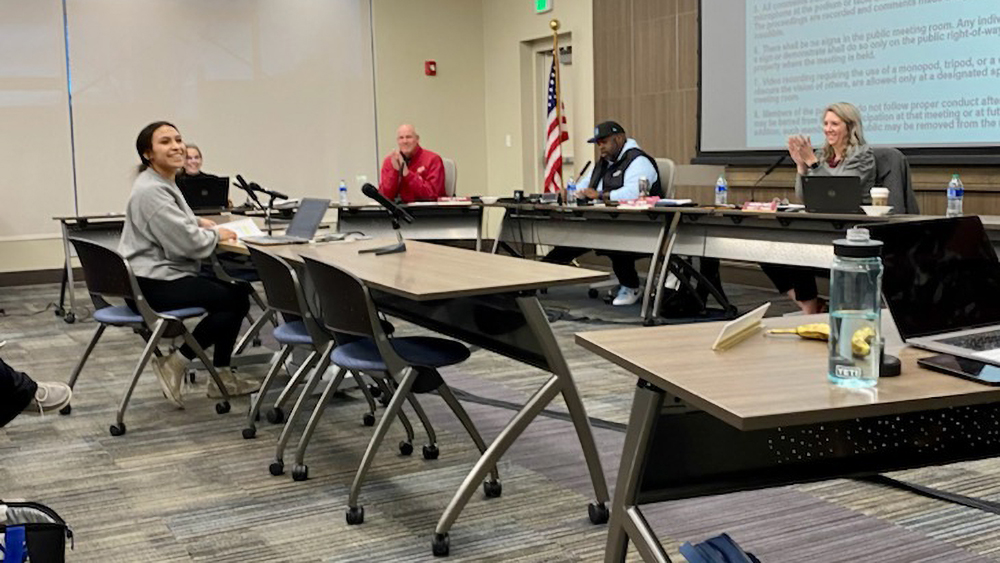- An Alliance For Community Action
- (970) 256-7650
- info@WesternColoradoAlliance.org
District 51 School Board puts ideology over students’ health
District 51 School Board puts ideology over students’ health

The District 51 School Board in Mesa County recently shut down the proposition to place a school-based health center in the new Grand Junction High School despite space having been already made in the building plans to accommodate it at no additional cost.
MarillacHealth would have paid rent to operate the facility, and numerous studies and examples including Central High School’s Warrior Wellness program, have demonstrated the immense positive impacts school-based health clinics offer students.
School-based health centers make healthcare and resources more readily available to those who may not otherwise have access to them for a variety of reasons including healthcare cost to families, lack of transportation, lack of a mental health care facility nearby, privacy, and many others.
Unfortunately, the school board has readily ignored this fact to instead offer alternate ‘options’ that fail to meet students’ needs for many reasons.
School Board President Andrea Haitz stated during the discussion that her proposed alternative option places the clinic outside of the school “across the street” (though it is not truly across the street but many blocks away), which would allow for not just students but the community-at-large to access this resource.
Board Member Will Jones agreed with this idea to place the health center outside the school building and that it should be a community health center rather than school-based, stating that Grand Junction High School students already have to walk across a busy street and to other buildings off campus grounds, while ignoring the fact that the current unsafe environment of students walking off campus and through dangerously busy intersections are among the major reasons for building the new campus.
Jones also expressed concern over the conveniently-timed notice of a pending lawsuit against Marillac regarding the use of funds for Central’s Warrior Wellness program, saying that he could not vote to approve the clinic while this was out there. Meanwhile, little to no information has actually come out surrounding the allegations and their veracity remains in question.
Western Colorado has seen suicide rates among youth (and suicide rates in general) far higher than the national average. Students in crisis can face waiting times of over three months to gain access to a mental health crisis facility, with some needing to drive to Montrose or Glenwood Springs just to get the help they need, an often impossible barrier for many of our students.
Anyone who has experienced a mental health crisis or had a family member experience one knows that waiting for help for three months can be a matter of life or death. When a person needs mental healthcare, they need it NOW, not later, and school-based health centers make this possible for thousands of students in an environment where they spend 40+ hours a week and have both peer and faculty support. School-based health centers have been shown to reduce suicide rates in student populations by 30%, and Central High School can boast that they have not experienced a single student suicide since placing the Warrior Wellness Center in their school in August 2020, while nearly every other high school in the valley cannot say the same — especially GJHS.
School District 51 has a higher-than-average number of students living in poverty (16%) or on Medicaid (54%), meaning a large portion of our student body has limited or no access to any healthcare service. This is where school-based health centers have the largest and most profound impact.
In just two years, Central’s Warrior Wellness program has seen over 2,000 students and nearly 5,000 visits, with 3,000 visits for physical health problems and nearly 2,000 for mental/behavioral health reasons. Over 1,000 depression screenings have been performed.
Students are stressed by so many factors: Social media, academic and social pressures, family issues, drug use, athletics, jobs, and more. Many of the clinic’s detractors argue that students should get this help through their parents. However, they fail to recognize the massive gaps in healthcare access a majority of our district’s students face.
During the vote to approve or deny the GJHS health center, Board Member Doug Levinson asked a clarifying question about whether the vote would have any impact on the successful and already-in-place health center at Central High School, to which Board Member Angela Lema said, “Not yet.” This current board apparently wants to not only prevent our students attending Grand Junction High School from getting access to this critical healthcare resource but to take it away from those who are already lucky enough to have it.
We would ask the Board to remember the reason they are in that office — to protect our kids and give them the opportunity to learn and grow into successful adults. By shutting down the GJHS health center, they have done just the opposite.
School outcomes and health outcomes are correlated. If kids are depressed, anxious, sick, and scared, they will not perform to the degree of which they are capable. Our kids have asked for this health center, and we should be listening to them. In a recent statement Andrea Haitz made in reference to the recall effort being launched against her, Haitz stated, “I have taken a strong and decisive approach to my role on the School Board, drawing on substantial input from the community, principals, teachers, and staff, as well as data, majority board consensus, and complete transparency to make informed decisions.” It has not gone unnoticed that Haitz never mentions getting input or listening to students.
It’s time we truly equip and empower students for a limitless tomorrow. It’s time for a school-based health clinic at the new Grand Junction High School, and to promise the students at Central High School that they will continue to have access to this incredible, life-saving resource.



